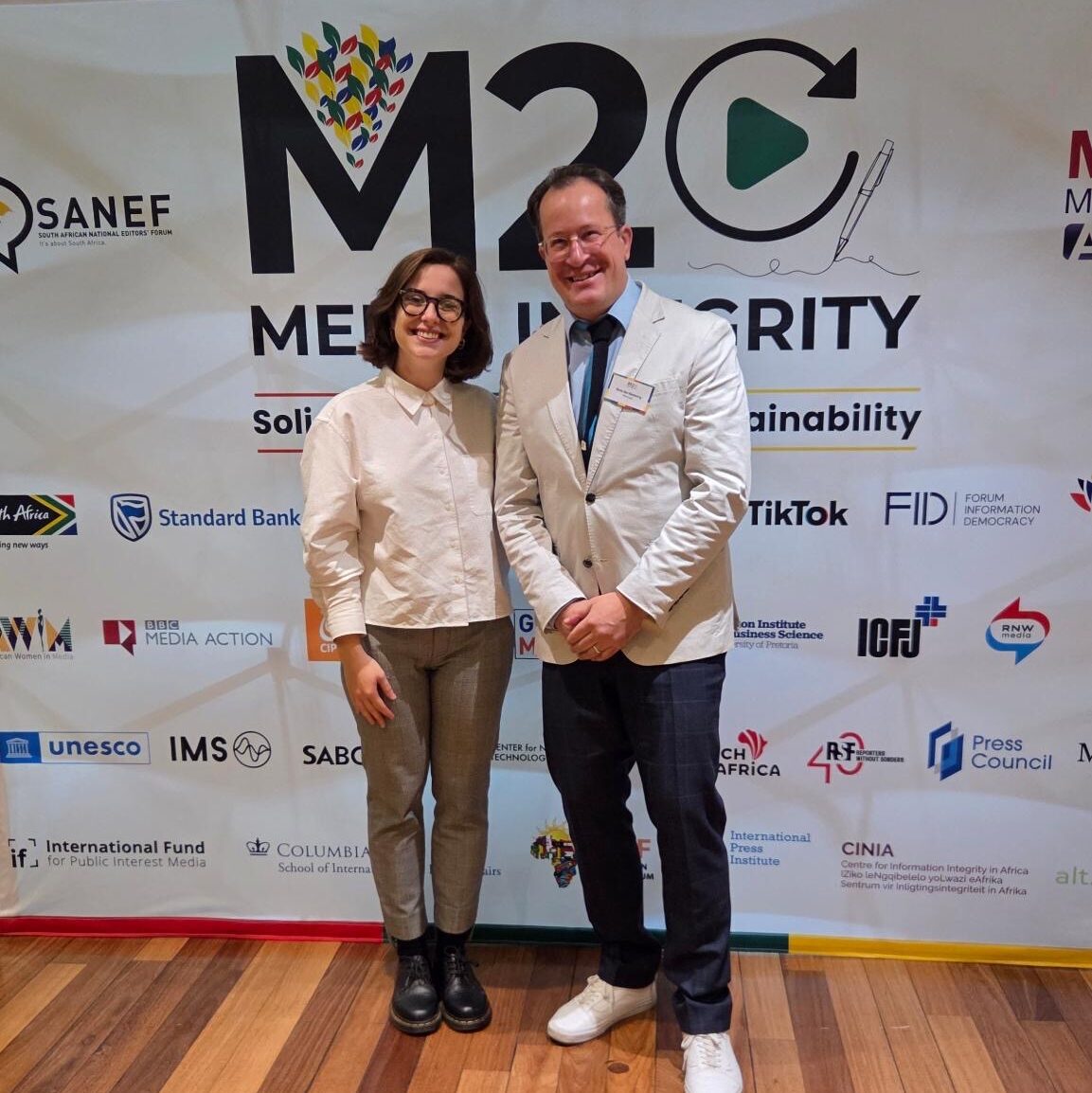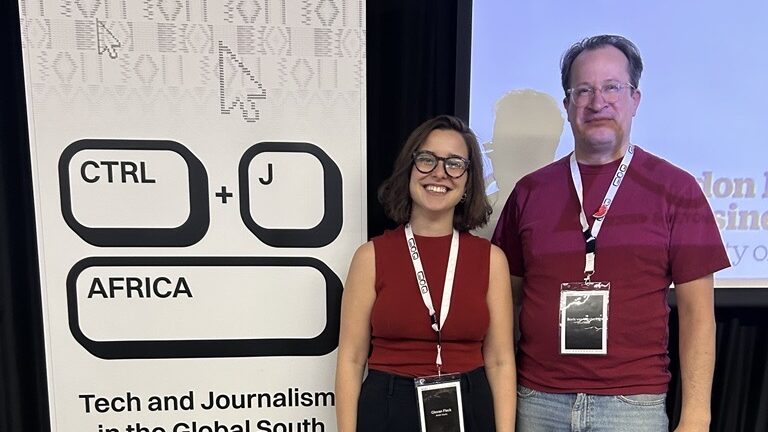This blog was authored by Giovana Fleck, Policy Advisor Media & Human Rights, who represented RNW Media at the Media20 Summit.
Who controls the future of journalism?
What possible futures can we, collective, envision? And who gets to control it?
Over the course of a week in Johannesburg, South Africa, RNW Media joined dozens of delegates from all over the world to discuss and offer answers for those guiding questions.
The Media20 Summit, organised by the South African National Editors’ Forum (SANEF) and Media Monitoring Africa (MMA), defined the priorities within the media sector amidst the G20 presidency of South Africa in 2025. A first of its kind, the M20 contributed to setting the agenda for issues concerning media, building on the momentum from the Brazilian presidency in 2024, which opened the way for discussing information integrity and platform regulation.

What’s information integrity?
Maintaining the integrity of information means that media ecosystems carry accurate, reliable and trustworthy information. It involves ensuring that information is factually based, consistent, and not subjected to corruption or manipulation. It also includes maintaining the well-being of those who contribute to the information landscape, prioritising a human-rights centred approach. You can learn more about it by reading RNW Media’s joint statement on the role of the EU on safeguarding information integrity.
Eight different policy briefs, each addressing a different challenge faced by media globally, informed the discussions at the event. After two days of deliberations, the M20 Summit concluded with the launch of the Johannesburg Declaration, a “call for significant steps to ensure that independent journalism and media pluralism are strengthened and information integrity is secured.” The declaration calls on G20 leaders to commit strategy and resources to support a diverse, plural and viable media landscape, while protecting journalism and journalists. Together with over 50 newsrooms and media organisations, RNW Media contributed to and endorsed the declaration.
CTRL+J
Shaped as a series of conversations about the future of journalism, CTRL+J is an idea that started as a provocation for how to build more solidarity and exchange knowledge based on experiences from the Global Majority. With a South-to-South approach, we gathered immediately after M20, building on the momentum from the previous convening to focus on collaboration for a safer and more inclusive media landscape.
Nanjira Sambuli, Scholar at Carnegie Endowment for International, started her keynote speech with:
“Narratives are about invisible power, when people determine what is right and what’s wrong”
Nanjira calls this a “tyranny of now”, where the media landscape has never seen more means of communication and an information overload, but we find ourselves discouraged to focus on context or historical information. Technology operates in autocratic ways when it governs our autonomy to decide how to consume information. “When do we find time to be critical? What does it means to truly own our narrative when it feels like we are always reacting?”, she asked.

Giovana Fleck and Boris van Westering at the M20 Summit
Ultimately, disinformation and misinformation stems from individualisation. At CTRL+J, we built and practiced solidarity with each other, collaborating and finding new avenues to engage. “Find your people”, said Paula Miraglia, founder and CEO of Momentum – Journalism & Tech Task Force.
These efforts to forge a common ground amidst these challenging times will continue, as we look forward to the next edition of CTRL+J in Kuala Lumpur, Malaysia in November 2025.
